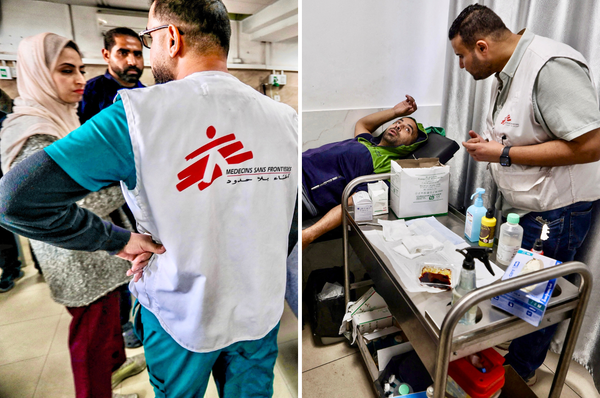Women In Iceland, Including The Prime Minister, Skipped Work To Protest The Gender Wage Gap
Iceland’s woman prime minster Katrín Jakobsdóttir joined thousands of women to strike against the gender wage gap and gender violence.
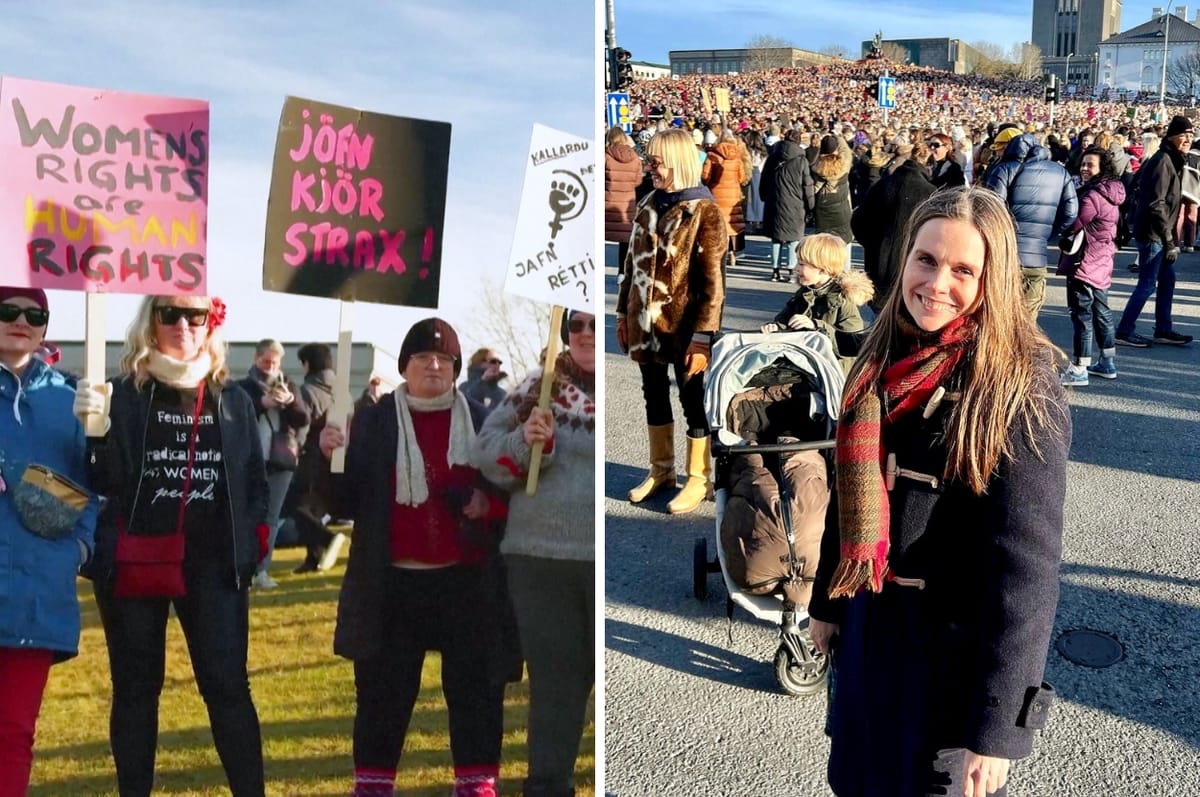
Thousands of Icelandic women staged the country’s first full-day women’s strike in 48 years to protest against gender pay gap and gender-based violence on Tuesday, Oct. 24, with Prime Minster Katrín Jakobsdóttir joining them.
Jakobsdóttir postponed a cabinet meeting her official duties for the day, with the woman employees that make up two-thirds of the cabinet staff following suit, according to officials.
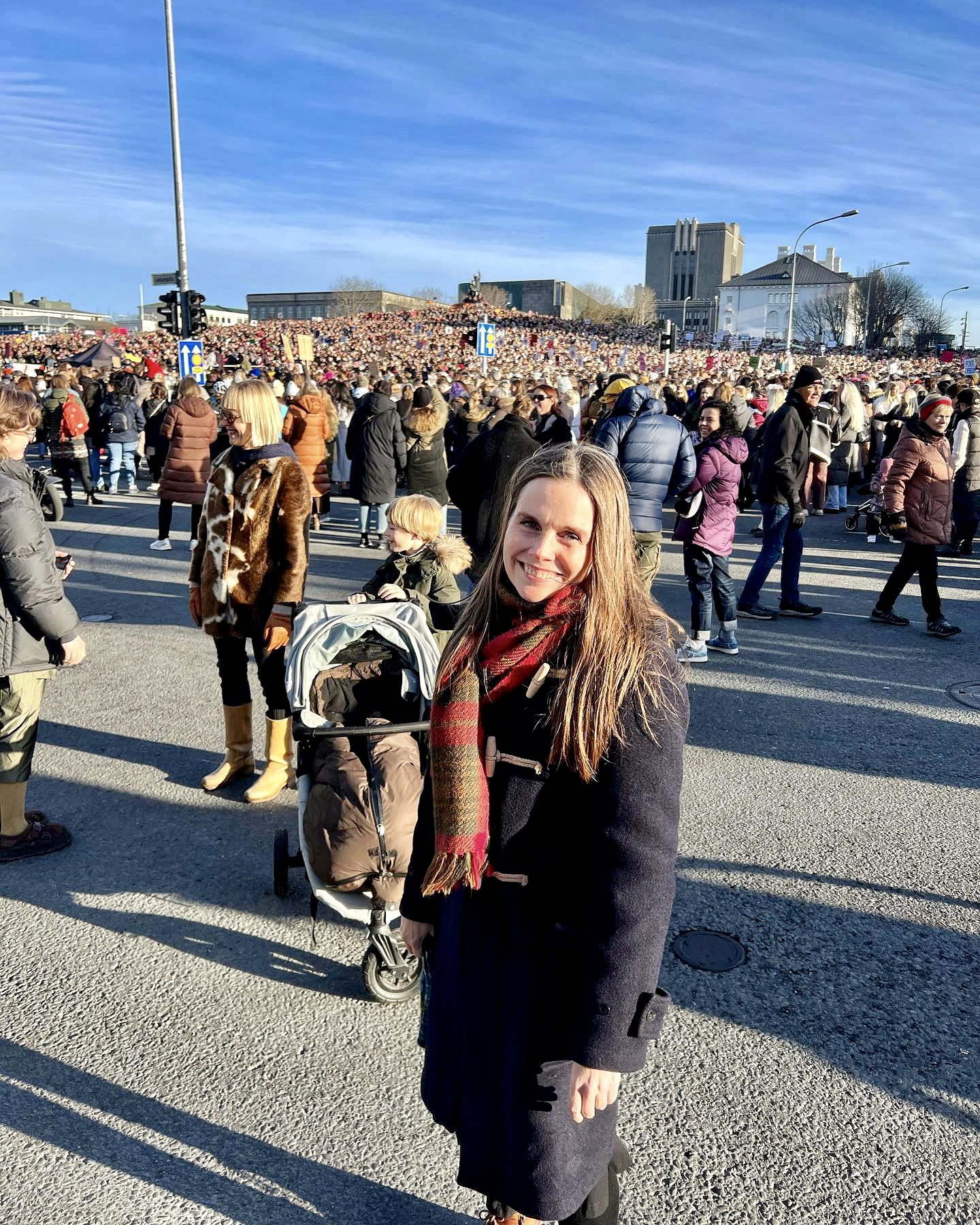
Some schools closed for the day, many medical clinics were only attending to emergencies, and only one bank branch remained open during the walkout, according to local news media.
Under the slogan “Do you call this equality?”, the nationwide walkout marks the seventh women’s strike and the first full-day event in Iceland since 1975, when about 90% of the country’s women workforce refused to work to raise awareness about women’s crucial economic role in society.
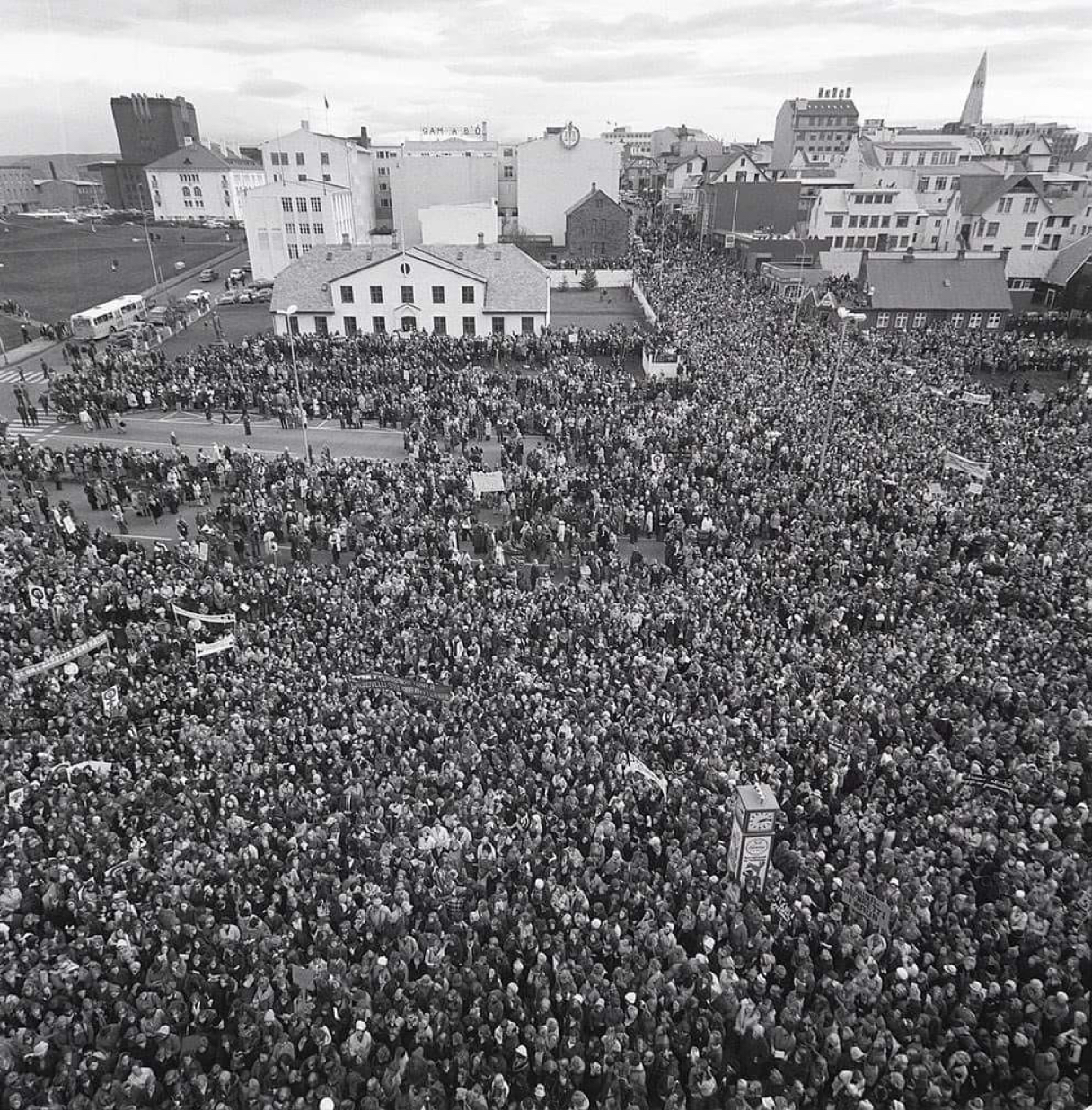
The 1975 strike led to the enactment of a new equal pay law the following year.
Organizers of the “Women’s Day Off”, or “Kvennafrí” in Icelandic, called on tens of thousands of women, including immigrant women and non-binary individuals, to decline both paid and non-paid jobs, including house chores and childcare.
They also urged women to report employers who discouraged participation and threatened to disclose the names of companies involved.
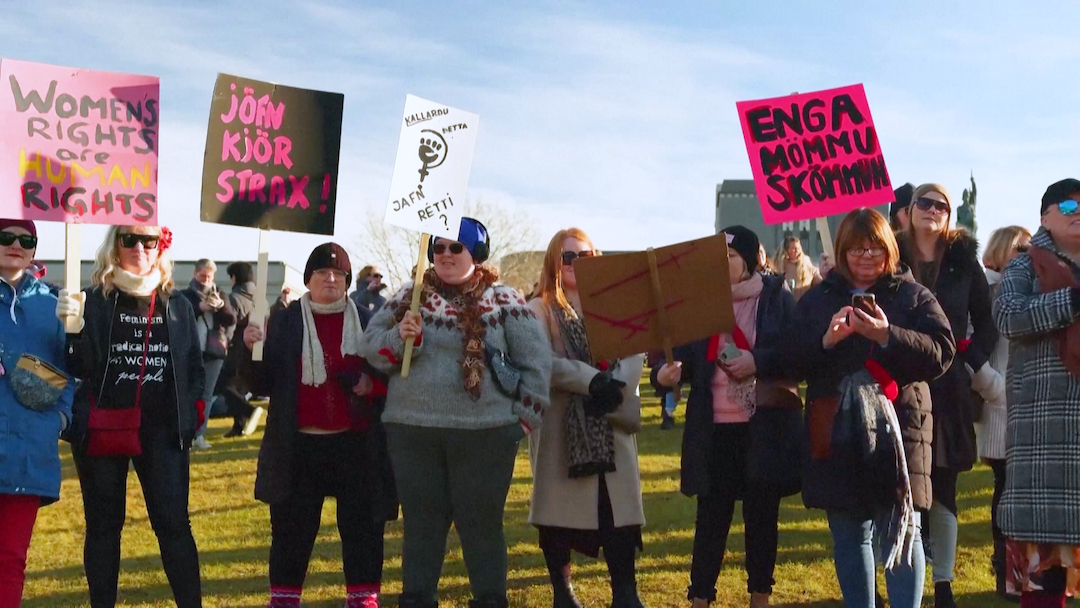
Iceland has long been recognized as one of the most progressive countries in terms of gender equality, ranking first in the World Economic Forum Gender Gap report for 14 consecutive years.
However, workplace inequality persists as women in certain industries continue to earn at least 20% less than men in Iceland, according to Statistics Iceland.
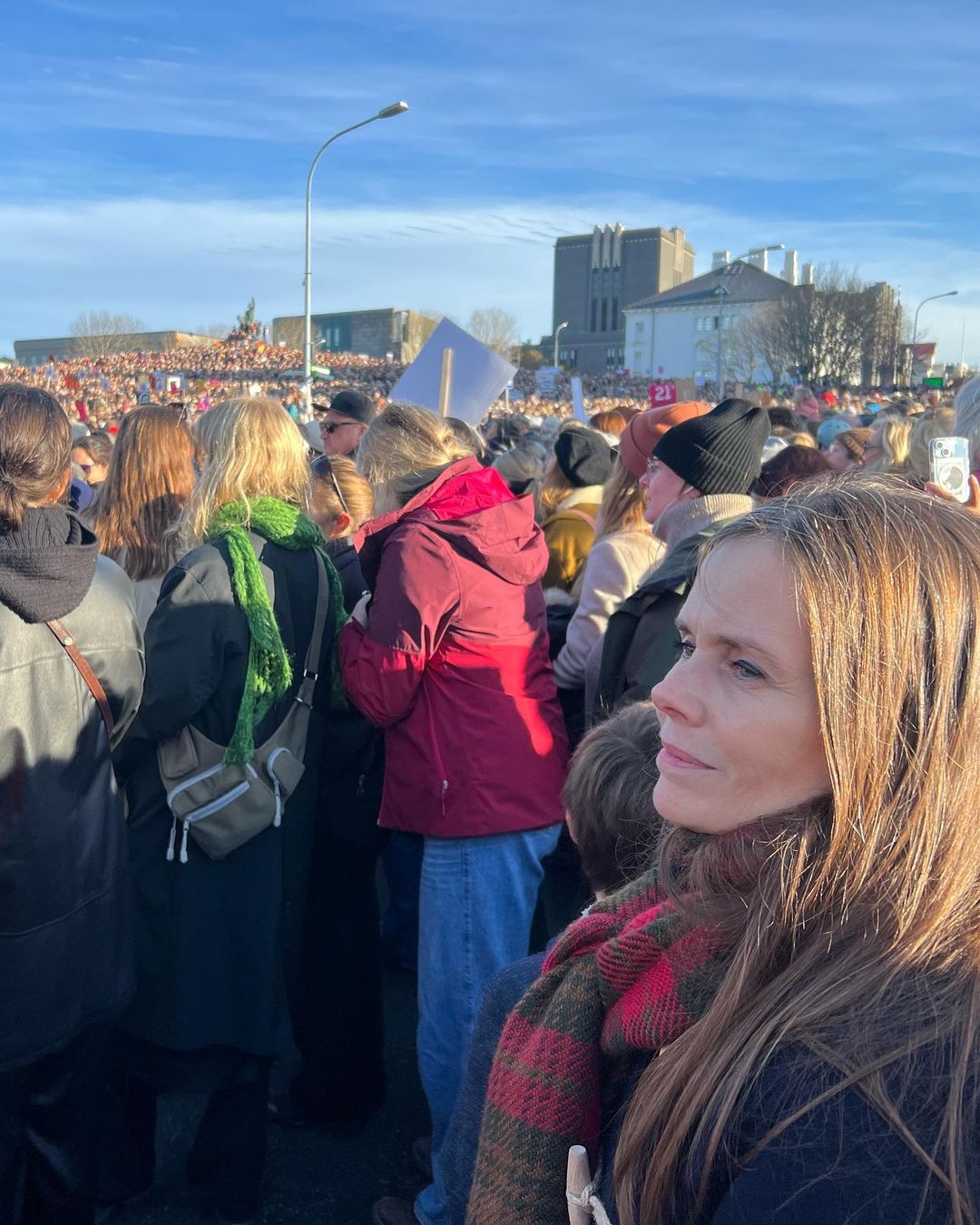
A University of Iceland study also found that 40% of Icelandic women had experienced gender-based and sexual violence before.
“We’re seeking to bring attention to the fact that we’re called an equality paradise, but there are still gender disparities and urgent need for action,” one of the organizers told Reuters.

